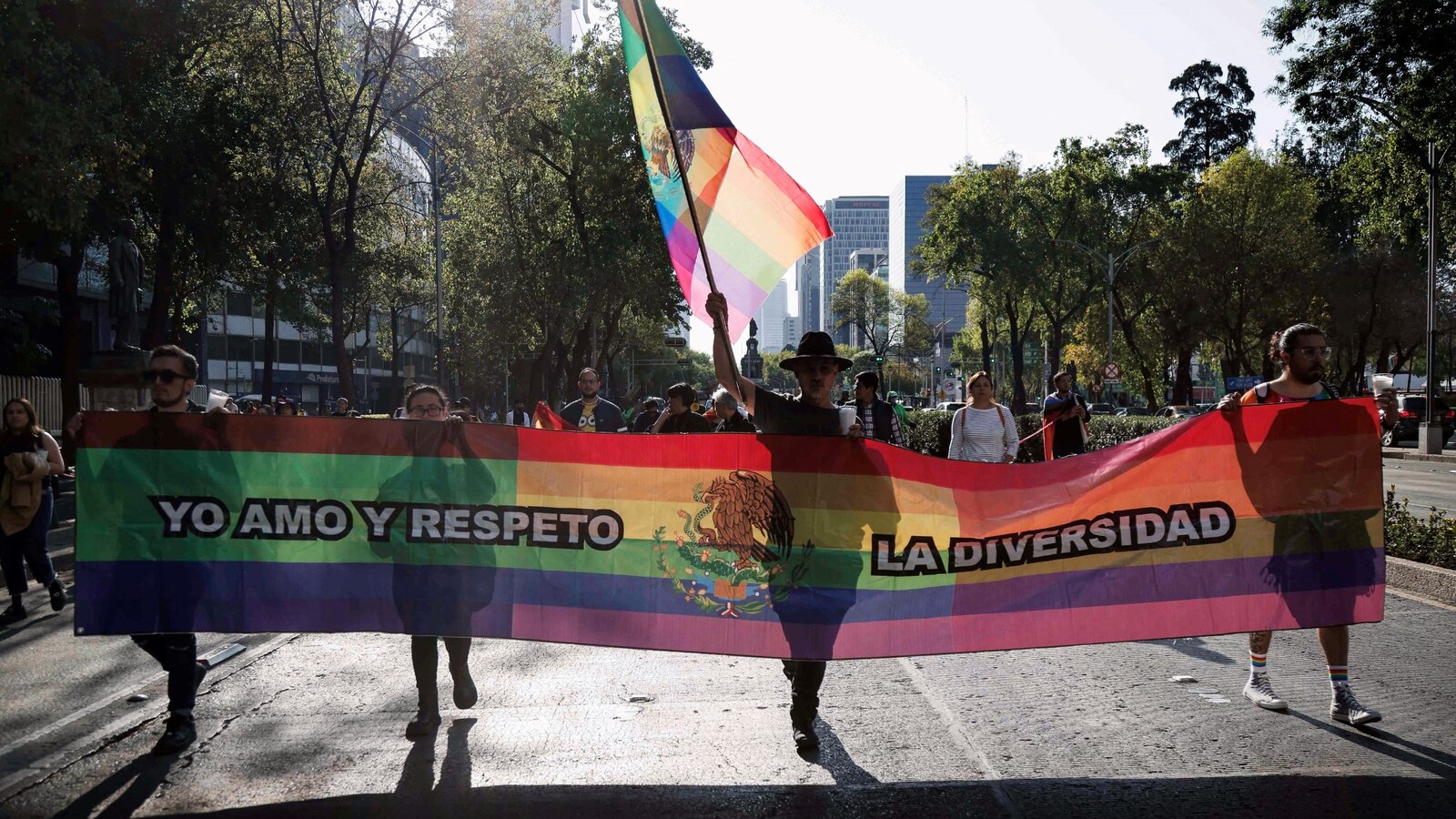
The new year has begun with a slate of transgender deaths in Mexico, prompting protests, outrage and fear among the country’s LGBTQ community.
At least three transgender women have been killed in just the first 15 days of the year.
On Jan. 14, Mexico City’s Attorney General’s Office reported that a transgender woman was fatally shot several times while in a car. LGBTQ rights advocacy groups say that the woman killed was prominent activist Samantha Gómes Fonseca.
According to Yaaj, an LGBTQ rights advocacy group, Fonseca had “a notable track record in defending highly vulnerable groups” and was running for the Senate of the Republic of Mexico in the left-leaning Morena political party.
“Much of the hate speech against the trans community has come from representatives of the state,” said Yaaj in its Spanish-language statement.

A demonstrator holds a candle and a picture of trans woman activist Samantha Gomes as members of the LGBTQ community take part in a protest following Gomes’ murder, Jan. 15, 2024, in Mexico City. Rodrigo Oropeza/AFP via Getty Images
Earlier this month, Mexico President Andrés Manuel López Obrador called Mexico’s first openly transgender representative Salma Luévano a “man dressed as a woman,” according to Mexican news outlet El País. The comment, for which he later apologized, was criticized by advocates for its potential to stoke anti-transgender sentiment throughout the nation.
“I want to start by offering an apology to a colleague who identifies as a woman and, yesterday, I said that she was a man dressed as a woman. I am very respectful and I believe in freedom and people should accept anyone, regardless of how they identify,” said López Obrador in a Spanish-language press conference.
Luévano condemned the recent transgender killings and called for action against anti-transgender violence and sentiments: “They are killing us,” she said in an Instagram post.
“I fear for life but I won’t shut up and I’ll continue to raise my voice,” said Luévano, who is also part of the Morena party.

Members of the LGBTQ community take part in a protest following the murder of trans woman activist Samantha Gomes, Jan. 15, 2024, in Mexico City. Rodrigo Oropeza/AFP via Getty Images
On Jan. 11, another transgender activist named Miriam Ríos was fatally shot at the store she owned, according to Michoacán’s Attorney General’s Office. Ríos was the municipal commissioner of the Movimiento Ciudadano in Michoacán — a left-leaning political party in Mexico.
“We will not allow this act to go unpunished,” said the Movimiento Ciudadano party in a Spanish-language post. A letter attached to the post continued, “Movimiento Ciudadano demands justice and truth for Miriam Ríos and legitimate access to justice for dissident communities.”

Members of the LGBTQ community take part in a protest following the murder of trans woman activist Samantha Gomes, Jan. 15, 2024, in Mexico City. Rodrigo Oropeza/AFP via Getty Images
The LGBTQ political advocacy organization The Movement for Equality in Mexico, MOVii, said the killing of Ríos represents an attack on human rights and the fight for equality.
“In the context of the 2024 electoral process, the largest in the history of our country and one in which an unprecedented number of candidates from people of sexual and gender diversity are presented, this murder highlights the urgent need to guarantee the safety and protection of all people who participate in political life, especially those belonging to historically marginalized and vulnerable groups,” said the organization in a statement.
Another transgender person was discovered by municipal police in Guadalajara, Jalisco, on Jan. 13, lying in a ravine who appeared to have a gunshot wound in their back, according to a statement from the state prosecutor’s office.
Mexico has seen hundreds of murders of LGBTQ victims in recent years. Between 2018 and 2022, there were at least “453 violent deaths of sexually diverse people,” according to LGBTQ advocacy group Letra Ese.
The deaths have prompted protests from members of the LGBTQ community and supporters, who marched through Mexico City calling for an end to the violence: “Trans sisters and allies of our cause, fight with us for respect, visibility and recognition of our gender identity!”



